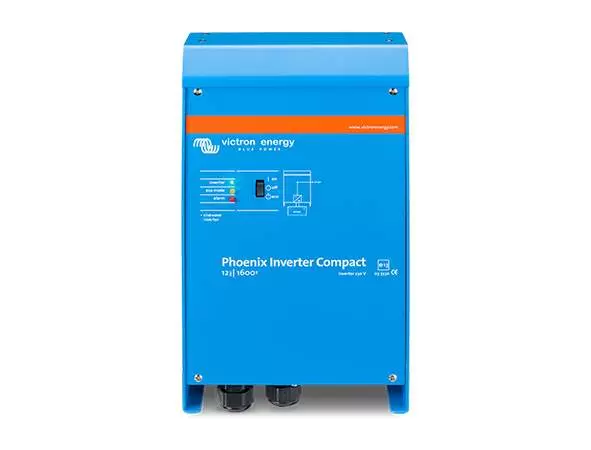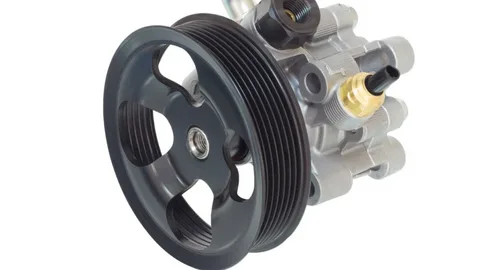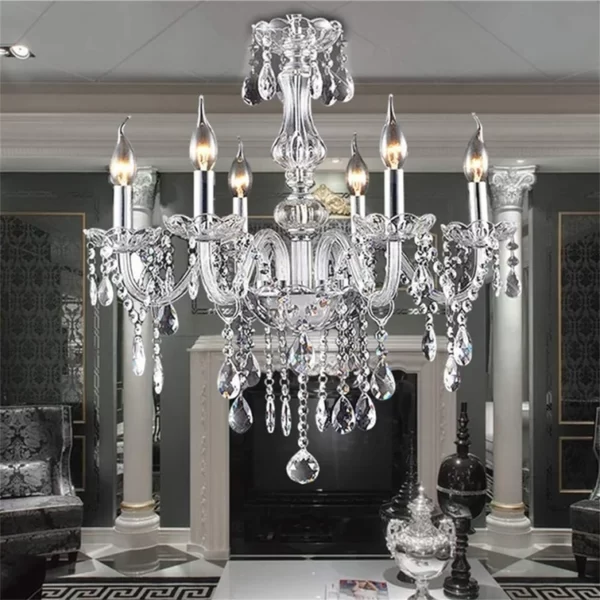Solar power has emerged as a dependable and clean energy source as the quest for sustainable energy gains momentum. Among the various components that enhance the efficiency of solar energy systems, hybrid PV inverter stands out as crucial elements. These inverters are instrumental in converting and managing solar power, ensuring that homes and businesses can make the most of the energy harnessed from the sun.
In this blog, we aim to show how hybrid PV inverters shape the future of solar energy storage and backup. We’ll delve into their operational mechanics, benefits, and the factors to consider when selecting the suitable inverter for your needs. By understanding the role of these advanced devices, you can make informed decisions about integrating solar power into your energy management strategy.
Stay tuned as we explore the emerging trends and advancements in hybrid inverter technology, offering a glimpse into what the future holds for solar energy solutions.
Explanation and Basic Role of inverter hybrid solar
Hybrid PV inverters represent a key advancement in solar energy technology. Their primary function goes beyond traditional inverters, as they are designed to manage the conversion of solar energy and its storage. These inverters facilitate the conversion of direct current (DC) generated by solar panels into alternating current (AC), making the energy usable for household and commercial appliances.
A distinctive feature of hybrid PV inverters is their ability to integrate seamlessly with battery storage systems. This integration enables users to store surplus energy generated during peak sunlight hours, which can be used during low sunlight or power outages. By ensuring a consistent energy supply, hybrid PV inverters enhance the reliability of solar energy systems.
The technology behind hybrid PV inverters also supports intelligent energy management. These inverters can prioritize solar energy over grid power, reducing energy costs and dependence on non-renewable energy sources. Additionally, they offer features like energy monitoring and intelligent grid interaction, providing users with greater control over their energy consumption patterns.
Another advantage of hybrid PV inverters is their adaptability to different energy needs. These inverters can be customized for a residential home or a large-scale commercial facility to fit specific energy requirements. Their flexibility makes them suitable for various applications, from off-grid installations to grid-tied systems with backup capabilities.
Overall, inverter hybrid solar plays an integral role in modern solar energy systems, offering energy conversion and efficient energy storage and management. This dual functionality ensures that solar energy can be optimized for use at any time, enhancing the overall efficiency and sustainability of the system.
Benefits of Inverter Solar Hybrid
1. Seamless Energy Transition and Uninterrupted Power Supply
Inverter solar hybrid ensures a smooth transition between solar power, battery storage, and grid supply. This provides a continuous energy flow, even during power outages or low sunlight periods.
2. Cost Savings on Electricity Bills
By efficiently managing stored energy and prioritizing solar power over grid electricity, solar hybrid inverters can help reduce electricity bills and provide significant energy cost savings.
3. Reduction in Carbon Footprint
Hybrid inverters reduce reliance on non-renewable energy sources, contributing to lower carbon emissions and a more sustainable energy approach.
4. Advanced Energy Monitoring and Management
Many hybrid inverters are equipped with smart technology, which allows real-time tracking of energy consumption and production. This helps users optimize energy usage and identify additional savings opportunities.
5. Versatility for Residential and Commercial Applications
These inverters are adaptable to various energy needs, making them suitable for multiple applications, from small households to extensive commercial facilities.
6. Eligibility for Government Incentives and Rebates
Solar hybrid inverters often qualify for government incentives and rebates, which can offset initial investment costs and make the technology more accessible.
7. A Smart Choice for Enhanced Energy Management
Overall, solar hybrid inverters offer a forward-thinking solution for improved energy management, making them an appealing option for anyone aiming to optimize their energy strategy.
Operational Mechanics of PV Inverter Hybrid
PV inverter hybrid converts direct current (DC) produced by solar panels into alternating current (AC), compatible with household and commercial appliances. This conversion process is essential for making solar-generated electricity usable in everyday applications. One of the standout features of hybrid PV inverters is their ability to interface with battery storage systems, allowing excess solar energy to be stored for later use. This ensures that surplus energy generated during peak sunlight hours is not wasted and can be utilized during low solar production or during power outages.
In addition to conversion and storage, hybrid PV inverters often incorporate advanced energy management systems. These systems enable the inverter to prioritize storing solar energy, overdrawing power from the grid. By doing so, they can help reduce electricity costs and reliance on non-renewable energy sources. Many models also come equipped with real-time energy monitoring capabilities, which allow users to track their energy consumption and production. This data can be instrumental in optimizing energy use and identifying further opportunities for efficiency improvements.
Overall, the operational mechanics of hybrid PV inverters are designed to maximize the efficiency and reliability of solar energy systems, making them a crucial component in modern sustainable energy solutions.
Selecting the Appropriate Solar Power Inverter for Home
Choosing a solar power inverter for home requires careful consideration of several factors to ensure optimal performance and compatibility with your solar energy system. First, evaluate the inverter’s compatibility with your existing solar panels and battery storage solutions. The inverter must handle the power output of your solar array and be suitable for the type of batteries you plan to use.
Next, assess the inverter’s capacity, which should align with your household or business’s energy needs. An undersized inverter may not fully utilize your solar panels’ potential, while an oversized one could be unnecessarily expensive. Efficiency ratings are also crucial; higher efficiency means more of the captured solar energy is converted into usable electricity.
Another important aspect is the inverter’s features and capabilities. Some models offer advanced functionalities like real-time energy monitoring, intelligent grid interaction, and remote management through mobile apps. These features can enhance your ability to manage and optimize energy use.
Additionally, consider the inverter’s warranty and the manufacturer’s reputation. A more extended warranty period and strong customer support can provide peace of mind and indicate the manufacturer’s confidence in their product’s reliability.
Finally, think about future scalability. If you plan to expand your solar system later, ensure the chosen inverter can accommodate additional panels and storage capacity without requiring a complete system overhaul.
Financial Considerations
Investing in a hybrid inverter requires careful financial planning, given the initial outlay can be higher than that of traditional inverters. However, the long-term economic benefits often justify the investment. One of the primary financial advantages is the significant reduction in electricity bills. By prioritizing solar energy and stored power, hybrid PV inverters minimize reliance on grid electricity, leading to substantial savings over time.
Government incentives and rebates play a crucial role in offsetting the initial investment. Many regions offer financial benefits to encourage the adoption of renewable energy solutions, making hybrid PV inverters more affordable. These incentives can include tax credits, grants, and rebates, significantly reducing the upfront cost.
It’s also important to consider the potential increase in property value. Homes equipped with solar energy systems, particularly those with advanced hybrid PV inverters, are often seen as more attractive to buyers, potentially leading to higher resale values. Additionally, these systems’ reduced energy costs and increased reliability can make properties more appealing in the real estate market.
When evaluating the financial aspects, also factor in the maintenance and operational costs. Hybrid PV inverters are generally low-maintenance, but occasional servicing may be required to ensure optimal performance. Overall, the long-term savings and government incentives make hybrid PV inverters a financially prudent choice.
Emerging Trends in Hybrid Inverter Technology
The hybrid inverter technology field is witnessing significant advancements, driven by the need for more efficient and integrated energy solutions. Recent models are designed to handle higher energy capacities, making them suitable for larger installations and commercial use. Enhanced monitoring features are becoming standard, allowing users to more accurately track energy consumption and production in real time.
Integration with smart home systems is another key trend. This integration enables homeowners to manage their energy use more effectively through automated controls and remote access. This integration facilitates energy efficiency and optimized usage patterns, reducing energy costs.
Another emerging trend is the development of inverters with enhanced grid interaction capabilities. These inverters can communicate with the grid to balance supply and demand dynamically, improving overall grid stability and reducing the likelihood of outages.
Innovations in battery technology are also influencing hybrid PV inverters. With the advent of more efficient and longer-lasting batteries, these inverters can now store more energy, ensuring a reliable power supply even during extended periods of low sunlight.
Additionally, manufacturers focus on making these inverters more user-friendly, with intuitive interfaces and simplified installation processes, broadening their appeal to a broader audience.
Conclusion
Hybrid PV inverters are revolutionizing solar energy systems by integrating energy storage with advanced management features. These inverters ensure that solar power can be utilized efficiently, even during power outages or periods of low sunlight. By reducing reliance on non-renewable energy sources, they contribute to both cost savings and environmental sustainability. Additionally, hybrid PV inverters support intelligent energy monitoring, allowing users to track and optimize their energy consumption. This technology is not just about energy conversion; it is a significant step towards more innovative, autonomous energy solutions. With the potential for government incentives and increased property value, investing in hybrid PV inverters is a forward-thinking decision.
Frequently Asked Questions
1. What is the primary function of a hybrid inverter?
The primary function is to convert DC power generated by solar panels into AC power, making it usable for household and commercial applications while also managing the storage of surplus energy in batteries.
2. How does a hybrid PV inverter differ from a traditional one?
Hybrid PV inverters offer the added capability of integrating with battery storage systems, enabling energy storage and better management, unlike traditional inverters that only convert solar energy.
3. Are hybrid PV inverters cost-effective?
Although they come with a higher initial cost, hybrid PV inverters provide long-term savings by reducing electricity bills and dependence on grid power, making them a cost-effective investment.
4. What factors should I consider when selecting a hybrid inverter?
Key factors include compatibility with your existing solar panels and batteries, the inverter’s capacity and efficiency ratings, and advanced features like real-time energy monitoring and intelligent grid interaction.
5. What future advancements can we expect in hybrid inverter technology?
Future developments will likely include better energy management features, improved integration with smart home technologies, and the ability to handle higher energy capacities, enhancing their efficiency and reliability.




